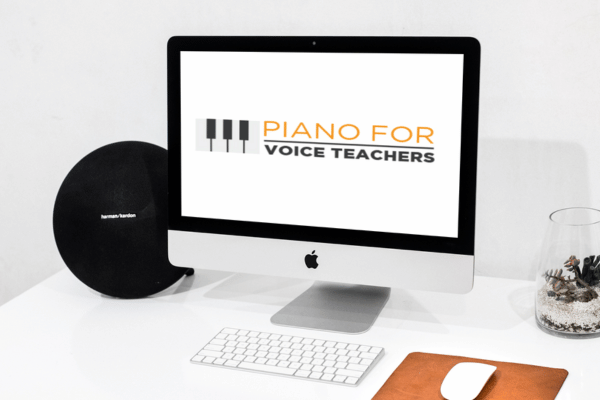As a singer, expanding your musical skills is a fantastic way to enhance your abilities and take your performances to the next level. Among the various instruments you can explore, the piano stands out as a highly recommended choice. Learning to play the piano not only empowers singers to create their own music but also provides a unique perspective on harmony and melody, enriching their musical understanding beyond what vocal performance alone can offer.
In this episode of The Intelligent Vocalist podcast hosted by John Henny, we delve into the fundamental aspects of piano playing tailored specifically for singers. Discover the elegance and simplicity of this versatile instrument and how it can benefit vocalists of all levels. Plus, John shares a valuable resource he has created specifically for voice teachers to learn piano. If you're intrigued by these topics, read on for more!
Key takeaways:
- The visual simplicity of a piano makes it easier for singers to pick up quickly
- Learning piano can improve your rhythm and intonation
- Playing piano is an important skill for voice teachers
Why Learning an Instrument is Crucial for Singers
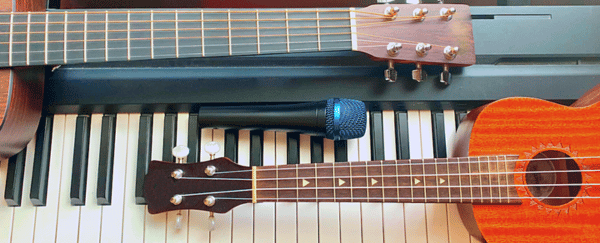
Just like how a bodybuilder visits the gym daily to build up their muscles, singers who learn an instrument not only nourish and support their brains but also enhance various physical and cognitive aspects of the human body. Above all, this journey introduces them to the deeper dimensions of music.
Learning how to play a musical instrument is essential for the success of a singer. It provides a deeper understanding of music theory, helps develop a keen ear for pitch, and enhances overall vocal technique.
It's an incredible way to elevate your vocal abilities, which is especially advantageous for singers. It nurtures musicality and a profound grasp of music theory. Fundamental skills for singers encompass reading music notation, mastering scales and chords, and cultivating a strong sense of rhythm.
The ability to read music notation is not just valuable; it's indispensable for any musician, and particularly for singers. It lays the groundwork for your musical knowledge and empowers you to comprehend the composition of a song. Scales, for instance, unravel the intricate relationship between notes, while chords provide the harmonic underpinning of a piece. Learning these two elements will not only enhance your singing but also deepen your appreciation of music.
Lastly, you'll undoubtedly forge stronger connections with your musical colleagues, especially those who are also musicians. You'll communicate more effectively with them, and your musical literacy will enhance your bond with both the music itself and your peers because of your newfound ability to play an instrument.
Advantages of Learning Piano
While the guitar is certainly a popular choice, the piano offers unique advantages for singers. It may take a bit longer for a piano to start sounding melodious, as initial piano pieces often appear deceptively simple when compared to the richness of guitar music. Nonetheless, John can help shed light on the numerous benefits that come with learning to play the piano as a singer:
The Functionality
Learning to play the piano can offer you a fantastic means of self-expression. This versatile instrument can adapt to various music styles, be it classical, jazz, or pop. It can take center stage as a solo instrument or harmonize beautifully with other instruments in ensembles or orchestras. As John pointed out, with a functional grasp of the piano, you can even accompany yourself by playing chords and grooves.
With this in mind, instead of purchasing full sheet music and strictly adhering to the written piano parts, you may want to consider acquiring a lead sheet, which includes the melody and chords. This approach allows you to create your own accompaniment, often a straightforward yet effective one, based on the provided chords.
The Visual Nature
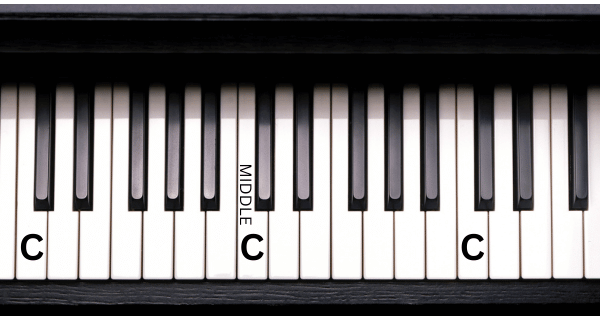
Learning to play the piano offers a unique advantage – it's an instrument where what you see is precisely what you get. This inherent visual clarity makes the learning process more accessible and intuitive. When you sit down at a piano, everything you need is right in front of you. Moreover, the layout of a piano is exceptionally logical and user-friendly.
The white keys on a piano are evenly spaced, creating a straightforward and intuitive navigation system across the keyboard. This even spacing simplifies the process of finding and identifying different notes.
The black keys, on the other hand, are organized in distinct groupings of twos and threes, separated by gaps. Think of the black keys as a road map on the piano keyboard, with their pattern of two, three, two, and three keys. Just to the left of the pair of black keys, you'll always find the note C, and there's a unique middle C conveniently positioned near the center of the piano. Since there's only one middle C, you'll never lose your way while playing.
The visual aspect of pianos provides a significant advantage for anyone learning to play. Having a clear and visible layout makes it much easier to grasp and understand the instrument, ultimately enhancing your piano playing journey.
The Simplicity
One of the significant advantages of learning piano is the instrument's simplicity. All the keys are easy to identify, and there is a direct correlation between them and the notes they produce. This makes it much easier for beginners to learn the basics of music theory and play simple songs.
With piano, your music-learning experience will be much more straightforward than with other instruments. You won't have to worry about complicated fingerings or intricate techniques; you can just focus on playing the notes and creating beautiful music.
The Pitch Recognition
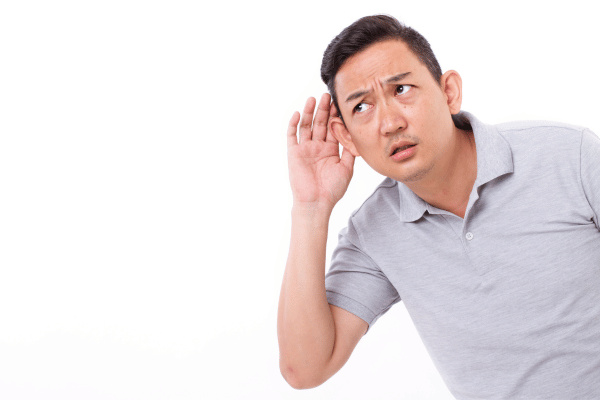
John highlights a significant advantage of learning the piano: it provides a stable reference point for both the instrument and your voice. This aspect is crucial as it greatly enhances your ability to improve intonation and match pitches effectively.
While playing the piano, you constantly fine-tune how you produce sound, relying on what you hear. This process is known as pitch recognition, which involves identifying the pitch of a sound.
Why is this so crucial, you ask? The answer lies in the improvement of your intonation and pitch-matching abilities. Whether you're a novice or a seasoned singer, staying in tune is a constant pursuit. The piano offers a stable and unchanging pitch, allowing you to hone your vocal accuracy. As you sing alongside this instrument, you'll find that your pitch recognition skills naturally sharpen.
The Rhythm
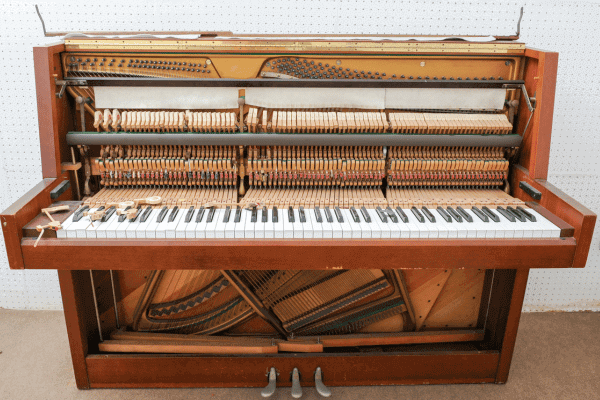
John recognizes that rhythm is one of the key abilities that distinguish great singers from those who are merely passable or professional amateurs. Professional singers possess a strong sense of timing and rhythm, and the good news is that you can cultivate this sense of timing through piano playing.
The piano, unlike other musical instruments, falls under the category of percussion instruments. When we play the piano, we're not blowing air across it or strumming strings; instead, we use our fingers to strike it, much like playing a drum. The piano is equipped with hammers that strike strings that produce the sound we hear.
What makes the piano a remarkable rhythmic instrument is its inherently progressive nature. As you begin to explore the piano, you'll also start developing the independence of your fingers and honing the coordination between your right and left hand. This process leads to a deeper level of mind-body control. The increased dexterity and precision you gain in your hands and fingers will ultimately have a positive impact on your singing voice.
Piano for Voice Teachers
As a voice teacher, learning to play the piano can profoundly enhance your understanding of the music you teach. It allows you to connect with the rhythm and flow of the pieces you're preparing, and it deepens your grasp of music theory.
Moreover, having piano skills lends you significant credibility in the eyes of your students. It equips you with a well-rounded skill set that can make you a more effective music teacher. When your students know you have a solid foundation in the material you teach, they'll respect you as a teacher.
One valuable resource for music educators seeking to become more effective in teaching voice lessons is the Piano for Voice Teachers program. This program is designed to empower teachers looking to take their teaching sessions to the next level.
The program was specifically crafted to address the challenges that teachers and singers face when it comes to piano proficiency. Many heavily rely on pre-recorded scales and karaoke tracks, which can slow down lessons and reduce efficiency due to the inability to accompany students or play scales for vocal warm-ups.
That's where the piano comes in as an invaluable companion for voice teachers, whether they have extensive experience in the field or are just starting out. It's also a skill that can be beneficial for singers themselves, enabling them to accompany their performances.
Elevate Your Singing with Piano
As a singer, you may find learning piano basics beneficial in enhancing your musical knowledge. It can give you a greater sense of rhythmic accuracy and control. If you're interested in bringing your singing to the next level, then taking the time to develop basic piano skills is worthwhile.
Staying in Touch
If you want to know more about John, you can visit johnhenny.com. There you can listen to previous episodes of The Intelligent Vocalist podcast, as well as access his blog posts. Join John's mailing list to get special offers that are exclusive to his mailing list, and stay up to date on new courses and books.
